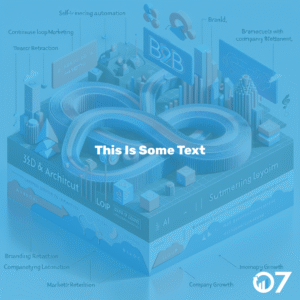Introduction to marketing career paths
Marketing career paths are rarely linear but offer real growth for those willing to adapt. Understanding this flexibility helps marketers build job security and progress effectively.
Many people expect a straight ladder in their career. However, marketing roles often involve varied experiences and changes that contribute to long-term success.
What non-linear career trajectories mean for marketers
Non-linear career trajectories describe a path that is not straightforward. In marketing, this means moving between different roles and responsibilities rather than following a fixed sequence.
This approach allows professionals to develop a broad range of skills. For example, someone might start in social media management and later move into content creation or analytics.
Flexibility in marketing careers is essential. It lets individuals respond to industry trends and personal interests, keeping their work engaging and relevant.
How adaptability supports job security and growth
Adaptability for job security means staying open to learning new skills and changing roles when needed. The marketing industry changes quickly, so professionals must keep up with new tools and strategies.
Continuous marketing skills development helps individuals remain valuable to employers. This can include training in digital marketing, data analysis, or customer experience.
Career growth strategies often involve seeking new challenges and responsibilities. Marketers who embrace change tend to find more opportunities for advancement.
Common marketing job roles and their variety
The marketing field includes many roles such as brand management, SEO specialist, email marketing, and graphic design. Each role requires different skills and offers unique experiences.
Career progression marketing rarely follows a single path. Professionals might move sideways into different roles or take on freelance projects to broaden their expertise.
Understanding marketing roles and responsibilities helps individuals plan their career paths. For example, gaining experience in web design can complement a marketing role focused on digital campaigns.
Real-world examples of varied marketing careers
One marketer started in email marketing but shifted to social media management after learning new skills. This change led to a promotion and greater job satisfaction.
Another professional moved from content creation to data analysis. This non-linear path helped them become a marketing strategist with strong insights.
A third example is someone who combined freelance graphic design with a full-time marketing role. This combination improved their creativity and opened new career opportunities.
Marketing career advice for navigating change
Marketing career advice often highlights the importance of networking and continuous learning. Attending workshops and industry events can reveal shared experiences of unconventional career journeys.
Building a diverse skill set is crucial. For instance, understanding both creative and analytical aspects of marketing makes a professional more adaptable.
Seeking mentorship and feedback helps individuals identify growth areas. This support is valuable when considering career changes or new roles.
What to do next
Recognise that marketing career paths are flexible and non-linear. Focus on developing a wide range of skills and stay open to new opportunities.
Explore roles beyond your current position and consider joining workshops or training sessions to enhance your adaptability.
Visit our web design or branding services pages to learn how diverse marketing skills can support your career growth.
Frequently asked questions
What are common marketing career paths?
Common paths include roles in digital marketing, brand management, content creation, SEO, and social media. Many marketers move between these roles to build experience.
How can I progress in a marketing career?
Progression involves gaining new skills, seeking varied roles, networking, and staying updated on industry trends. Being adaptable is key to advancement.
What skills are needed for marketing jobs?
Important skills include communication, creativity, data analysis, digital tools proficiency, and project management. Continuous learning enhances these abilities.
Encourage further engagement via our blog or contact us via email or telephone 01702 410663





